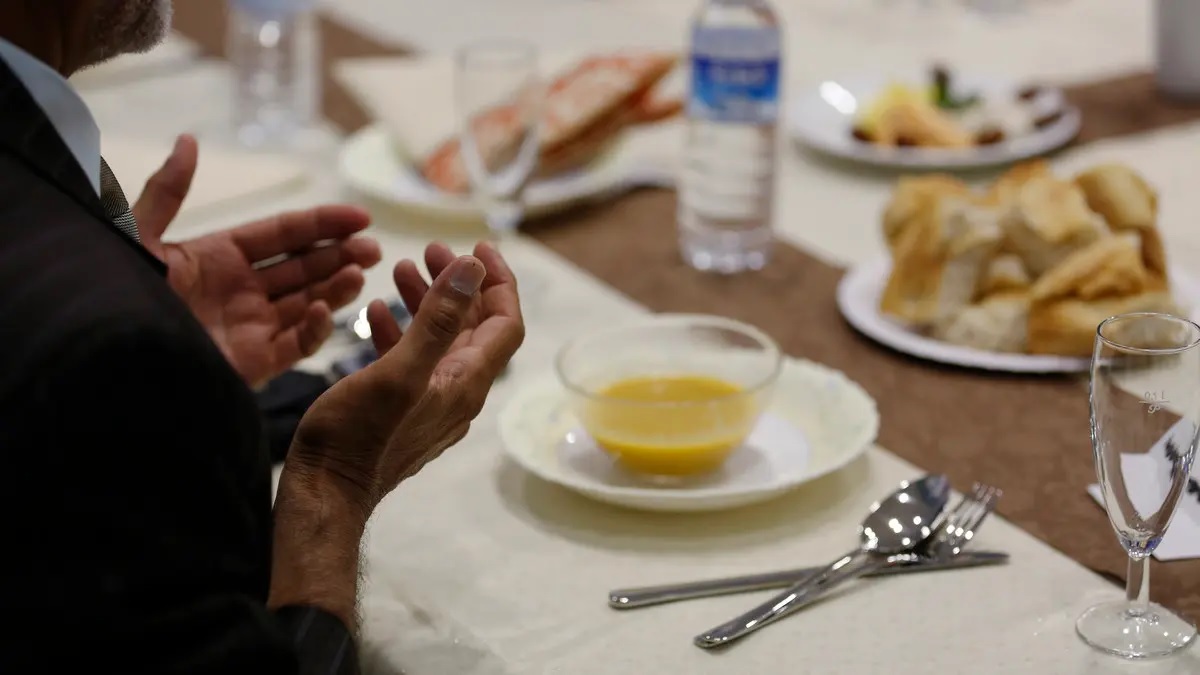Ramadan is a month of fasting observed by Muslims worldwide. It is a time of spiritual reflection, self-discipline, and increased devotion to Allah. During this month, Muslims abstain from eating and drinking from dawn until sunset. While fasting during Ramadan can be challenging, it is also an opportunity for self-improvement and growth. If you are a new Muslim and have never fasted before, you may find it challenging to cope with hunger and thirst. In this guide, we will provide you with some tips to help you cope with hunger and thirst during Ramadan.
- Prepare Yourself Mentally and Physically
The first step to coping with hunger and thirst during Ramadan is to prepare yourself mentally and physically. This includes gradually adjusting your eating habits in the weeks leading up to Ramadan. Start by eating smaller meals and avoiding sugary and fatty foods. Additionally, you should drink plenty of water during non-fasting hours to keep your body hydrated.
- Start Small
If you’re new to fasting, it’s essential to start small. Begin by fasting for half a day or a few hours and gradually increase your fasting time as your body gets used to the practice. This way, you’ll be able to build up your tolerance and stamina for longer fasting hours for the month of Ramadan.
- Stay Hydrated
One of the most important things to remember during Ramadan is to stay hydrated. While you cannot drink water or other liquids during fasting hours, you can make sure you are well hydrated during non-fasting hours. Drink at least 8-10 glasses of water per day and avoid sugary and caffeinated beverages. You can also eat hydrating foods such as watermelon, cucumber, and lettuce.
- Plan Your Meals
Planning your meals is crucial during Ramadan. You should break your fast with a light meal that includes dates and water. This will help to replenish your energy levels and rehydrate your body. You should also eat foods that are high in fiber and protein, as these will help you feel full for longer periods.
- Avoid Overeating
While it may be tempting to overeat during the evening meal, this can lead to discomfort and indigestion. It is important to eat slowly and chew your food well to aid digestion. You should also avoid fried and fatty foods, as these can lead to heartburn and acid reflux.
- Get Enough Rest
Getting enough rest during Ramadan is essential. You should aim for at least 7-8 hours of sleep per night to help your body recover from the day’s fasting. You can also take naps during the day to help you feel refreshed.
- Stay Active
While it may be tempting to avoid physical activity during Ramadan, staying active can actually help you cope with hunger and thirst. Light exercise such as walking or yoga can help to improve your energy levels and reduce feelings of hunger. You should also avoid strenuous exercise during fasting hours, as this can lead to dehydration and fatigue.
- Keep Yourself Busy
Keeping yourself busy during fasting hours can help you take your mind off food and make the fast more manageable. You can engage in activities like reading, praying, volunteering, or spending time with family and friends. Keeping yourself busy will also help you pass the time more quickly.
Read More: Ramadan 2020: The Health Benefits of Fasting – About Pakistan
- Seek Support
Fasting can be challenging, especially for new Muslims. Seek support from your community or friends who have experience with fasting. They can provide you with guidance, encouragement, and motivation to help you stay on track and make the fast more manageable.
- Understand the Significance of Ramadan
Before beginning your fast, it’s essential to understand the significance of Ramadan in Islam. Learn about the history, rituals, and practices of Ramadan, as well as the benefits of fasting. This will help you stay motivated and committed throughout the month.
- Develop a Fasting Schedule
Develop a fasting schedule that works for you. Depending on your location and lifestyle, you may need to adjust your fasting hours. Consult with your local mosque or community for guidance on the appropriate time to start and end your fast.
- Practice Self-Discipline
Ramadan is a time for self-discipline and self-control. Use this time to break bad habits and develop positive ones. Avoid negative behaviors such as gossiping, lying, or backbiting, and practice positive ones such as kindness, generosity, and forgiveness.
- Increase Your Spiritual Activities
Use this time to increase your spiritual activities, such as praying, reading the Quran, and giving charity. Attend mosque activities and community events to connect with other Muslims and strengthen your spiritual connection with Allah.
- Stay Hydrated During Non-Fasting Hours
Drink plenty of fluids during non-fasting hours to keep your body hydrated. Avoid sugary or caffeinated drinks as they can dehydrate your body. Instead, opt for water, coconut water, or other hydrating fluids.
- Avoid Salty Foods
Salty foods can make you feel thirstier, so it’s best to avoid them during Ramadan. Opt for fresh fruits and vegetables, lean protein, and whole grains instead.
- Eat Foods with High Water Content
Foods with high water content, such as watermelon, cucumber, and tomatoes, can help keep your body hydrated. Incorporate these foods into your meals and snacks to help control your thirst.
- Avoid Spicy Foods
Spicy foods can make you feel thirstier, so it’s best to avoid them during Ramadan. Opt for mild or non-spicy foods instead.
- Avoid Strenuous Activities
Strenuous activities can cause you to sweat and become dehydrated quickly. It’s best to avoid them during the fasting hours of Ramadan. Instead, engage in lighter activities such as walking or gentle stretching.
- Use a Mist Spray or Face Cloth
A mist spray or face cloth can help you stay cool and control your thirst during the fasting hours. Keep a mist spray or damp face cloth with you and use it to refresh yourself when you feel thirsty.
- Avoid Direct Sunlight
Direct sunlight can cause you to become dehydrated quickly, so it’s best to avoid it during fasting hours. If you need to be outside, wear light-colored, loose-fitting clothes, and a hat to protect yourself from the sun.
- Eat a Balanced Suhoor
Suhoor is the meal you eat before dawn to begin your fast for the day. Eating a balanced suhoor with protein, fiber, and healthy fats can help you feel fuller for longer and control your hunger during the day.
- Avoid Sugary Foods
Sugary foods can cause your blood sugar levels to spike and then crash, leading to feelings of hunger. Avoid sugary foods during Ramadan and opt for foods with complex carbohydrates instead.
- Eat Slowly
Eating slowly can help you feel fuller for longer and control your hunger. Take your time to chew your food and savor each bite, and try to eat your meals in a relaxed and calm environment.
- Avoid Overeating
Overeating can make you feel bloated and uncomfortable, and it can also lead to feelings of hunger later in the day. Eat smaller, more frequent meals during the non-fasting hours to help control your hunger.
- Drink Plenty of Water
Drinking plenty of water during non-fasting hours can help control your hunger. Sometimes we confuse thirst with hunger, so staying hydrated can help you feel fuller and reduce your cravings for food.
- Practice Self-Control
Ramadan is a time for self-discipline and self-control. Use this time to break bad habits and develop positive ones. Avoid overeating, snacking, or indulging in unhealthy foods, and practice positive behaviors such as mindfulness, gratitude, and self-reflection.
Read More: An Insight To Pakistani Cuisine – About Pakistan
Conclusion
Fasting during Ramadan can be challenging, especially for new Muslims who have never fasted before. However, with the right preparation and mindset, you can cope with hunger and thirst during this holy month. Remember to stay hydrated, plan your meals, avoid overeating, get enough rest, and stay active. Although fasting during Ramadan is a challenging but rewarding experience that helps Muslims strengthen their spiritual connection with Allah. Starting small, staying hydrated, planning your meals, keeping yourself busy, getting enough rest, staying active, and seeking support can all help make the fast more manageable for new Muslims. With the right mindset and habits, you can successfully observe the fast and reap the benefits of Ramadan and strengthen your spiritual connection with Allah.























